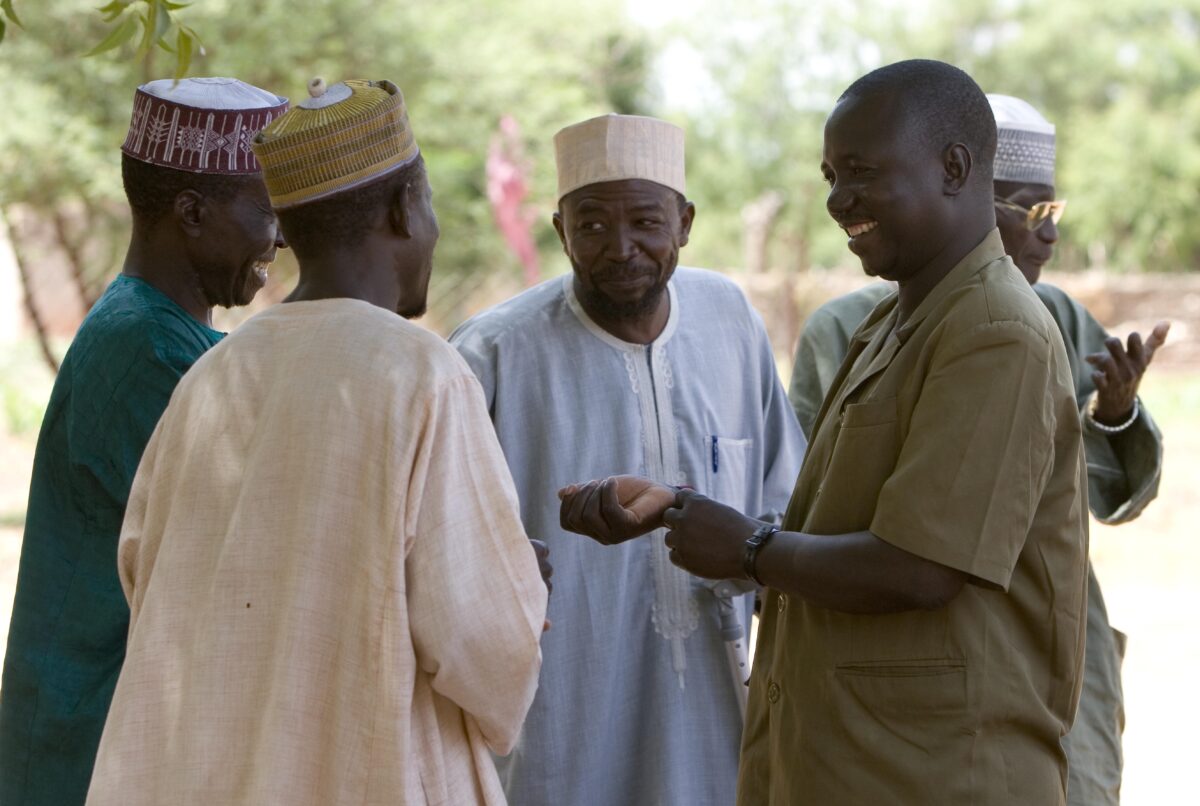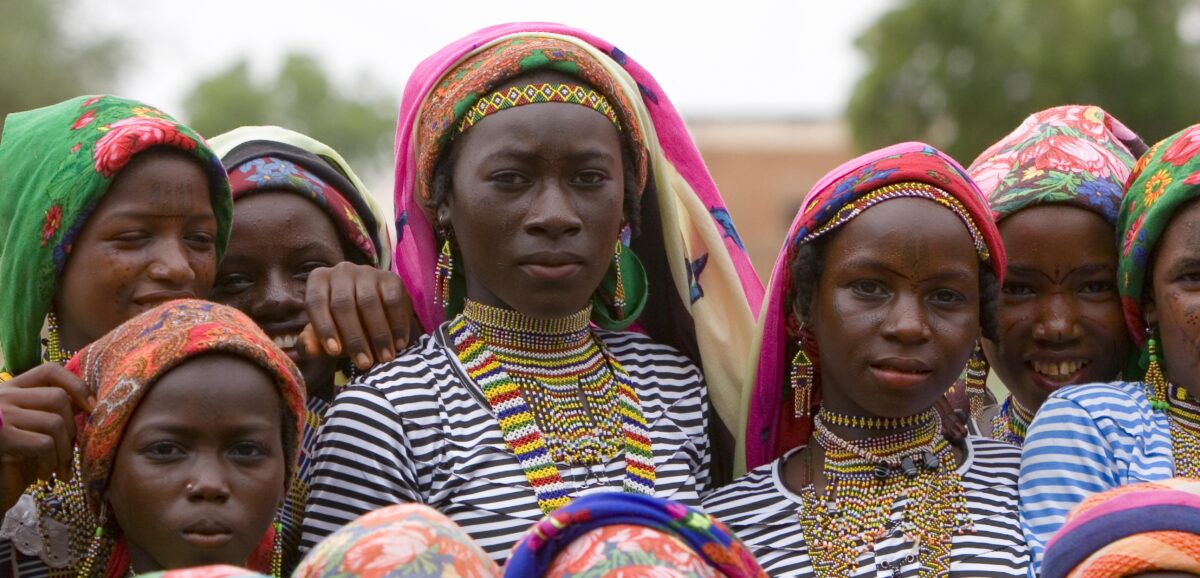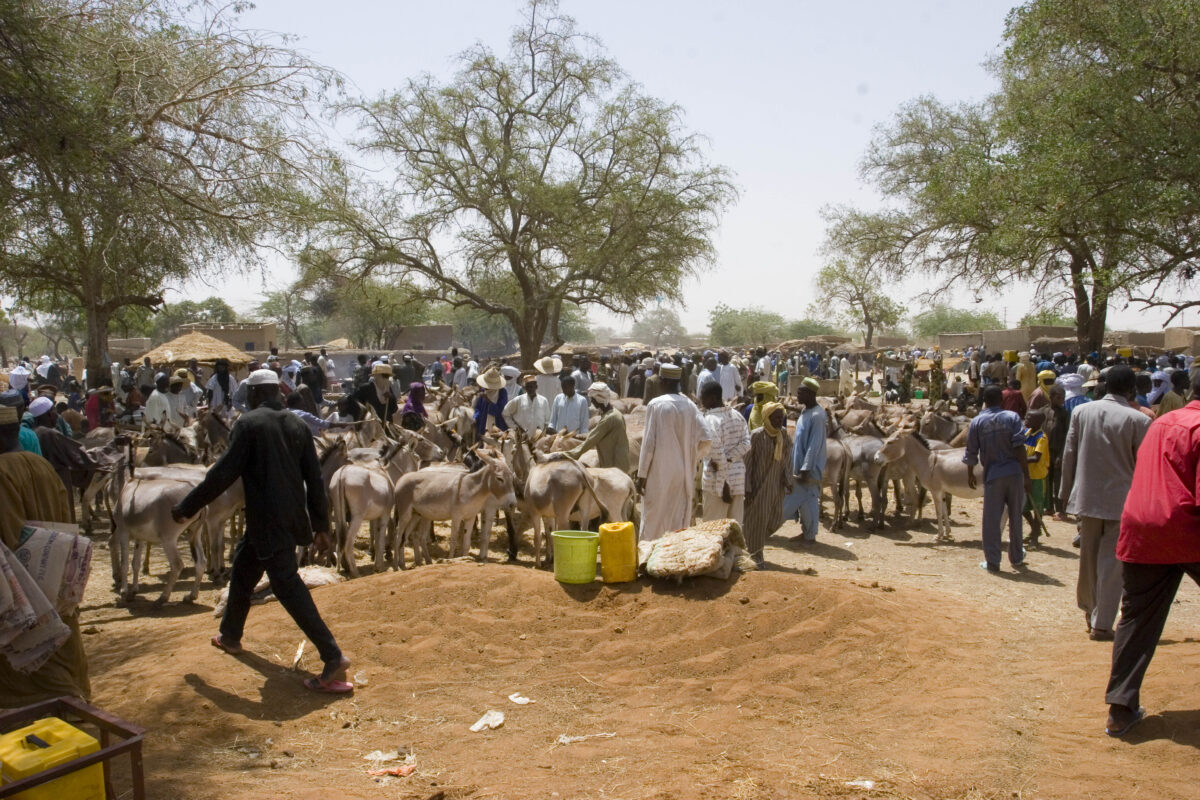The Fulani are masters of herding and a majority Muslim people with a storied past. Prioritising the well-being of their animals, they follow well-established grazing patterns, which lead the Fulani to linger in rural areas.

Approximately 40 million Fulani live in West and Central Africa, with an estimated 20 million found in Nigeria alone.
Historically in Nigeria, Fulani have identified with one of four class structures: The nomadic; the semi-nomadic; the settled; town Fulani; and the ruling class.
But the semi-nomadic Fulani (the largest of the four classes) are deemed outcasts and left on the fringes of society.
SIM worker Jon explains: “Because they have only ‘come in from the bush,’ in recent years, they are marginalised and not trusted by most settled people. Even the name Fulani seems to be a somewhat othering derivation of the Arabic word fulaan, meaning ‘so-and-so.’”
Furthermore, the Fulani are governed by a social code called pulaaku i.e. ‘Fulani-ness.’ that encapsulates the principles of reserve and endurance, in which the Fulani take great pride.
And while the Fulani are typically a peaceful people, several pockets appear to have recently formed affiliations with extreme Islamic groups, adding fuel to the fire of suspicion that keeps much of the world at arm’s length.
It is unsurprising that the Fulani are living and dying without hearing the good news of Jesus as they’ve simply had little opportunity to learn about him in their cultural framework.
But this is changing thanks to SIM’s Faithful Witness scheme.
A mobilised a team of workers has now been created to bring the good news to the Fulani in northern Nigeria. A few Christians have been ministering to them already, but Faithful Witness will bring further coordination and support to this space.
“If the Fulani are to be reached, it will require an approach that is as unique as they are,” says Jon. “It will mean employing all the principles of cross-cultural understanding at the disposal of the workers.”
For Faithful Witness, the best approach to building relationships is through language learning. Traditionally, the Fulani speak Fulfude, which according to Jon, is a remarkable but complex language that takes years to master, let alone use articulately.

Recalling his time befriending Fulani in Niger, Jon says: “I spent hours and hours and hours hanging out and just talking. Your back gets sore from sitting on a mat, but life happens around you, and you learn the culture.
“There’s no word in Fulfulde for ‘please’. But it’s in the way you say it – there’s the right way to say it and the wrong way. Language is a verbal expression of culture.”

Grant Birks, interim Nigeria Director, agrees. “Working among the Fulani is both a rewarding and challenging task.
“A key step in effectively working among them begins with first learning their language. This allows one to effectively communicate to them in their heart language, while showing them your love in Christ.”
Fulfulde language immersion will happen in due course. For now, the Faithful Witness team is starting with Hausa because the region uses it more widely and it is generally a more versatile language.
Another facet of relationship-building is appreciating the needs of the Fulani people. As more choose to put down roots and establish permanent homes, they are facing new challenges.
They must arrange education for their children and source clean water, but keeping and herding the cattle, which are practically extensions of their families, are also significant responsibilities.
Since the Fulani value outsiders showing interest in their animals, mission worker with veterinary experience could successfully form connections.
Grant adds: “Empowering the local church and Fulani believers to minister among the Fulani is a key step at reaching them for the gospel. Major ministry opportunities include theological education, the production of Fulfulde gospel materials, medical and movie-based outreaches and supportive based ministries.”
His charge to the Faithful Witness team, and to anyone considering mission work in Nigeria, is to, “Come and tell the stories – good stories – of what God is doing here.
“Although work among the Fulani often seems slow-going, God is actively working.”
By Amy Bareham Chapman
Please pray:
• Grace for the team as they adjust to cultural differences.
• Peace for the transition, especially as the team gets settled.
• Perseverance and encouragement throughout the language learning process.